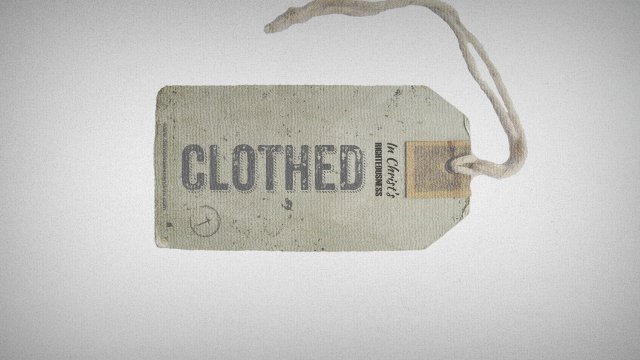
A Wonderful Theological Fiction
The post-biblical theological language and conceptual idea of 'imputation' (and specifically, 'imputed righteousness') that features so heavily in certain Protestant traditions, is not to be found in the Messianic Scriptures (New Testament). Charles G. Finney (1792-1875), known as the 'American father of revivalism', once colourfully described the Calvinist explanation of imputation and the atonement as "a wonderful theological fiction". John Wesley, the founder of Methodism, stated:
"It is nowhere stated in Scripture that Christ's personal righteousness is imputed to us. Not a text can be found which contains any enunciation of the doctrine."
Explaining How the Resurrection Affects Us
Atonement is a word used to try to explain what Messiah has accomplished on the cross. Imputation is a word used to try and explain how Messiah's resurrection personally affects us. But what is a Christian/Messianic to do when the theological explanations we have heard preached by denominational groups such as the Calvinists seem to find sparse grounds in the Bible and do not therefore sit well with our souls?
An Inferred Theological Construction
The concept of 'imputation' is a theological construct based on inferences (deductions) made from Paul's writings. And whilst this fact neither proves nor disproves the legitimacy of the doctrine that has come to be known as 'imputation', it does not, as Calvinists and others teach, lie at the heart or centre of the Besorah (Gospel). Critically, it was never explicitly taught by Yah'shua the Messiah (Jesus Christ).
Key Explicit Doctrines of the Faith
By contrast, the resurrection, caring for "the least of these My brethren" (Mt.25:40,45, NKJV), obeying "the least of these mitzvot (commandments)" (Mt.5:19, NKJV) of the Torah, Messiah's death for our sins on the cross (the Atonement), and the sovereignty of Elohim (God) are all explicitly and plainly taught by Christ and in the Bible generally. However, the concept of 'imputation' is not explicitly there.
The Messianic Evangelical Position
It is the position of Messianic Evangelicals that something that is not explicitly taught in Scripture cannot therefore lie at its centre or reside in its very heart as those particularly of the Reformed (Calvinist) Protestant position insist. Nevertheless, because it is regarded as important by some traditions (for whom acceptance or rejection is a matter of salvation itself), it warrants careful examination.
Sin, Inheritance and Imputation
The doctrine of 'Imputation', as it has come to be called, cannot be viewed apart from the doctrines of 'Sin' and 'Inheritance', which is where we must first begin before examining 'Imputation'. These three are traditionally linked together in the doctrine of Hamartiology, of which a good illustration would be what the early Catholic historian Augustine (354-439 AD, and forerunner of Calvinism) dubbed the 'Penitential Psalms' (Ps.6; 32; 38; 51; 102; 130; and 143), with one of Martin Luther's first studies (ca.1517) being a translation and exposition of these psalms. We will consider part of one of them:
"Have mercy on me, O Elohim (God), according to Your steadfast love; according to Your abundant mercy blot out my transgressions. Wash me thoroughly from my iniquity, and cleanse me from my sin. For I know my transgressions, and my sin is ever before me. Against You, You alone, have I sinned, and done what is evil in Your sight, so that You are justified in Your sentence and blameless when You pass judgment" (Ps.51:1-4, NRSV).
Consequences of the Protestant View of Sin
From this psalm in particular, Luther, the Reformers in general, and Protestant exegetes, pastors, evangelists, and teachers to our own day came to a number of conclusions:
- 1. Sin directly impacts one's view of Elohim (God), and one's view of Elohim (God) directly impacts one's view of sin;
- 2. Sin sheds light on our human condition: behaviour, motives, relationships, and eternal destiny;
- 3. Sin impacts one's view and need for salvation;
- 4. One's view of sin impacts one's understanding of the messianic community (church), spiritual life, spiritual warfare, and end times (restoration);
- 5. One's view of sin impacts one's understanding of biblical exegesis and theological methodology;
- 6. One's view of sin sheds light on one's view of human history;
- 7. One's view of sin impacts the way one interacts with others; and
- 8. One's view of sin sheds light upon Yah'shua the Messiah (Jesus Christ), His teachings, His Atonement, present ministry, future divine judgments, future reign, and eternal state.
Morality and Wickedness
With such thoughts in mind, the Christian philosopher Ravi Zacharias asks the important question:
"Can an individual or society live without a complete disregard for a moral and spiritual center and not suffer from the wounds of wickedness?"
Defining Sin
The Messianic Scriptures (New Testament) make four general observations concerning these things:
- 1. Sin is defined in relation to Elohim (God) and His double-faceted moral Torah or Law:
- a. Conscience or the Torah inscribed on the heart (Rom.2:15); and
- b. The Written Torah or Mitzvot (Commandments) (Rom.2:17-29)
- 2. Sin includes our individual acts (1 Jn.3:4);
- 3. Sin includes our attitudes that are contrary to what Yahweh requires of us (Gal.5:20; Mt.5:22; Mk.12:20); and
- 4. Sin is also defined in view of our very nature, i.e. the internal character that is the essence of who we are as persons. As Paul states, "Messiah (Christ) died for us while we were still sinners" (Rom.5:8, KNT) or "we too were subject to wrath in our natural state, just like everyone else" (Eph.2:3, KNT).
To be continued....
What Imputation Is and Isn't
Imputation may be described as that act or phase of salvation whereby Yahweh accounts the believer righteous in Messiah. This occurs because Messiah bore the sins of those who make teshuvah (repent) and become reconciled to Elohim (God) (Rom.3:24-31; 4:1-25; Jas.2:23; 2 Cor.5:19).
Imputation is a change of accounts, a new debt to Elohim (God) (Rom.1:14; 4:1-11,22-24; Gal.3:6-14; Jas.2:23; 2 Cor.5:17-19)
(6 January 2020)
|


